Video MGMT System
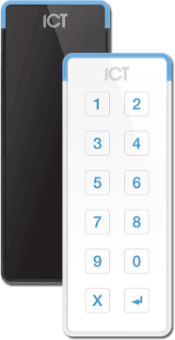 Access Control
Access Control
Voice & Data Wiring
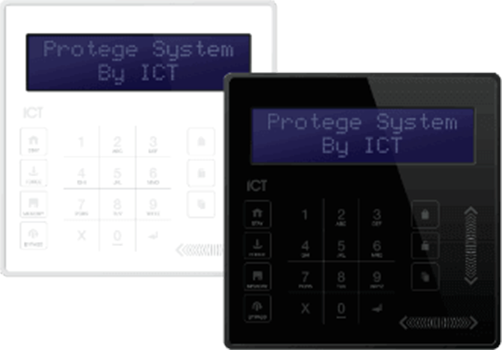 Burglar Alarm
Burglar Alarm
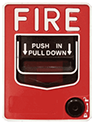 Fire Alarm
Fire Alarm
Video MGMT System
Voice & Data Wiring
Our security solutions for healthcare facilities reduce and contain acts of violence, prevent valuable medical equipment from going missing, keep medications from being stolen or going bad, and empower medical professionals and security staff to get more done quickly and with less hassle. What's more, our team knows how to secure healthcare facilities while staying HIPAA compliant.
You know the importance of protecting patients from the violence and emotional harm that unauthorized visitors can cause. Even when harm isn't intended, unauthorized entry to restricted areas can interrupt patient care, spread infections, and require time-consuming incident reports.
Automated access control systems solve these problems by electronically locking doors and requiring authorized credentials or the approval of security managers before allowing passage to restricted areas.
Today's access control systems are safer and more reliable than traditional locking methods. They also feature automated protocols to log information for compliance, freeing up your staff to focus on patient care and other priorities.
Patients and visitors are difficult to screen for violent histories. Even peaceful patients can suddenly exhibit violent behavior when in pain or disoriented by medications.
Visitors pose the greatest security risk to healthcare facilities and often become violent because of stress or a perceived lack of adequate care for loved ones.
Sometimes, facility staff, security guards, and healthcare professionals engage in violent behavior. It can take many forms, including physical assaults, verbal threats, property destruction, and—in "angel of death" cases—serial murder.
While human behavior cannot be predicted with complete accuracy, harm caused by violent patients, visitors, and staff can be minimized with on-site security personnel, door readers that automatically log entry and exit data at patient rooms, electronic locks that prevent free movement of violent individuals, and HIPAA-compliant IP security cameras for situational awareness, video evidence, and deterrence.
Only IP (Internet Protocol) security cameras should be installed at hospitals and healthcare facilities. They provide high-resolution footage and empower security professionals with live monitoring on handheld devices even when they're away from surveillance system control rooms.
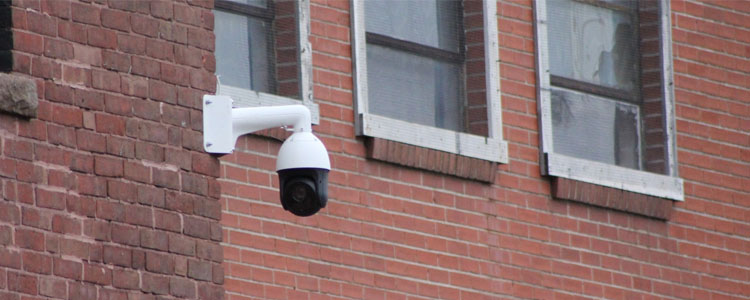
IP camera systems with AI-supported features, like behavior detection and facial recognition, offer healthcare facilities an even greater level of security.
AI-supported facial recognition cameras are used to track people, reinforce visitor management and access control systems, and alert personnel to the presence of people who have exhibited unacceptable behaviors in the past.
AI-supported behavior detection cameras provide alerts when patients, visitors, or staff exhibit behaviors associated with extreme frustration and anger. These alerts help security guards be present where needed and can give them enough advanced warning to de-escalate situations before they become serious incidents.
Small facilities without on-site security personnel can benefit even more from AI-supported security cameras than large facilities. By assessing security camera footage with better attention and accuracy than live guards, AI-supported systems provide staff at smaller facilities with instant notifications of potential security breaches to get their attention when it's needed. The rest of their time, staff can focus on other tasks and daily operations.
With advanced video management software by cutting-edge security companies like Avigilon and Milestone, incident investigations are easier and more efficient than ever. Video management systems with artificial intelligence let users apply smart filters to review countless hours of video data in moments to find the specific footage they need.
With access control devices and alarm sensors expertly placed by our crew, you'll have effective measures in place to prevent thieves from breaking in unnoticed and putting your valuable equipment, medical supplies, and drugs on the illicit market.
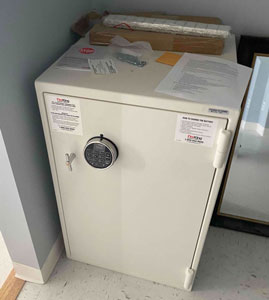
Our access control installations also protect against internal theft by providing detailed logs of all staff access to storage areas. For extra protection of especially valuable or addictive substances, we install specialized safes with alarm sensors that require disarm codes and document the exact time and ID of staff making access attempts. In the event that inventory does go missing, investigators can use integrated security interfaces to review access log data side-by-side with surveillance footage.
Theft isn't the only way that medications are lost. To secure medications that require temperature-controlled storage, our team installs specialized wireless temperature sensors inside medical fridges. These sensors provide proactive alarms when temperatures go above or below preset limits.
To meet Health Insurance Portability and Accountability Act (HIPAA) requirements, hospitals and other healthcare facilities need security camera installations from experts with experience adhering to patient privacy requirements.
Our security engineers understand HIPAA compliance and know how to design security installations that meet regulations. For example, our hallway cameras are masked to limit views into treatment rooms, and our access control systems are configured to automatically log the access information necessary for compliance.
Integrated security systems combine security technologies such as access control systems, surveillance cameras, intrusion sensors, and fire alarms into a single, unified interface for seamless monitoring and management of all devices.
By placing livestreams and recorded surveillance alongside access control and other security tools, staff have a centralized repository for security data and are able to monitor and manage all security technologies on a single platform.
During emergency situations, when time is precious and well-informed decisions must be made fast, the heightened situational awareness provided by an integrated security system can be the difference between maintaining stability and making the evening news.
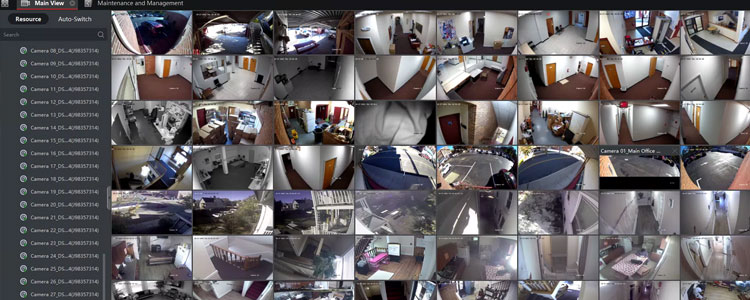
For example, in the event of a violent attack, integrated security cameras provide real-time visual evidence of movement side-by-side with tools for automatic lockdowns, internal warning systems, and emergency notifications to law enforcement.
Integrated security systems provide a centralized repository for security data, such as video footage, access control logs, and intrusion alerts. This makes it easy to track security incidents, complete investigations, and automate data collection for legal compliance and daily operations.
Medical security systems should integrate with each other. By using open-source and ONVIF-compliant software and devices, it's possible to customize and integrate a wide range of security and management tools from different manufacturers.
Open-source security systems allow for easy customizations that save money for institutions and make work easier and more efficient for staff members.
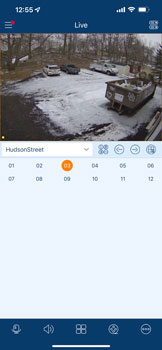
The security system should have high-quality IP cameras so that security personnel have access to clear, detailed footage no matter where they are in your facility.
Every security device offers its own unique set of features and should be selected based on how well those features meet the needs of the area they will be installed.
For example, license-plate-reading (LPR) cameras with night vision are most useful around parking lots, while cameras capable of object counting are most useful in areas like supply rooms.
When it comes to access control, credential readers with advanced encryption technology should protect highly restricted areas, while access control devices capable of automated badge printing belong at visitor entrances.
All security system components should be customizable and scalable to meet changing needs as facilities grow or change.
The security system should have a user-friendly interface for easy access to footage, data, and system controls.
Security systems at healthcare facilities should be hardwired wherever possible for maximum reliability and extra protection against hackers.
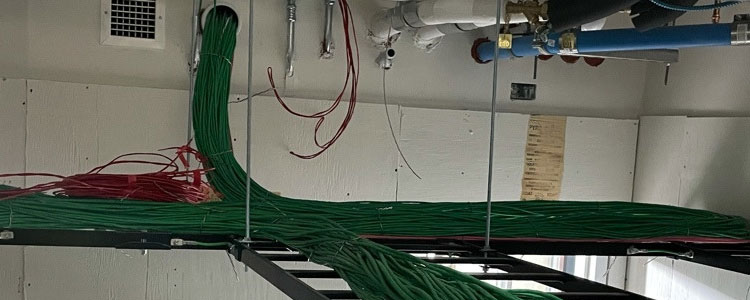
While wireless security systems are sometimes considered adequate for home installations, they are only as reliable as their Wi-Fi connections. Even fast-food restaurants and small mom-and-pop establishments prefer hardwired structured cabling for their security.
In other words, structured cabling systems that are labeled, organized, and installed by experts are the only acceptable route for security data at medical facilities.
The security system should have a proven track record of consistent performance. A hospital or medical office is not the place to experiment with little-known manufacturers who don't have reputations to maintain.
Just as healthcare facilities shouldn't experiment with untested security brands, they shouldn't experiment with untested security system installers. After all, no matter how good your security components are, poorly matched devices and bad installation jobs will dramatically degrade your system's effectiveness.
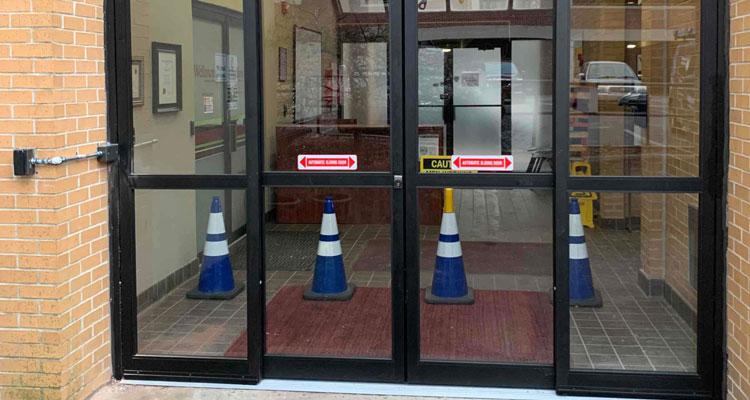
Our team at Mammoth Security is trusted by Wellmore Behavioral Health in Waterbury, CT for the video surveillance and access control systems they use throughout their facilities. Wellmore entrances, elevators, and restricted areas are secure thanks to our access control installations. Meanwhile, our camera installations provide the HIPAA-compliant surveillance coverage they need.
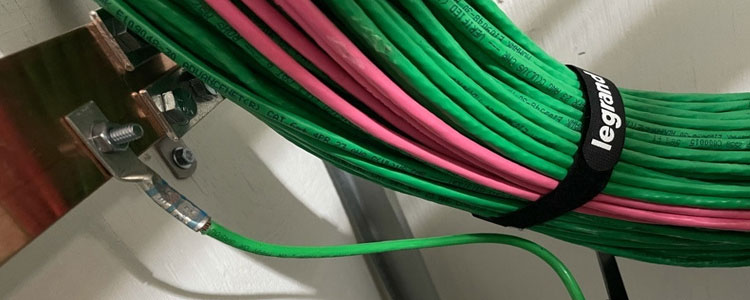
The University of Connecticut Health Center in Farmington is a massive teaching and research hospital and has the only Level 1 trauma center in the Farmington Valley. Our expert crew was trusted to install the CAT6 structured cabling that connects high-level laboratory equipment and computers on their campus to their main distribution frame. These cables meet the National Electrical Code (NEC) standards required for all healthcare facility installations and have all been certified and tested by our expertly trained security professionals.
A healthcare security system combines physical security with technological measures like video surveillance and access control to protect patients, staff, and assets within a healthcare facility.
The types of security measures put in place at hospitals include access control and visitor management systems, surveillance cameras, fire alarms, in-person security personnel, and background checks for all staff. The specific components of a hospital's security system will vary depending on advice from legal staff, security assessments, and the size and type of facility being protected.
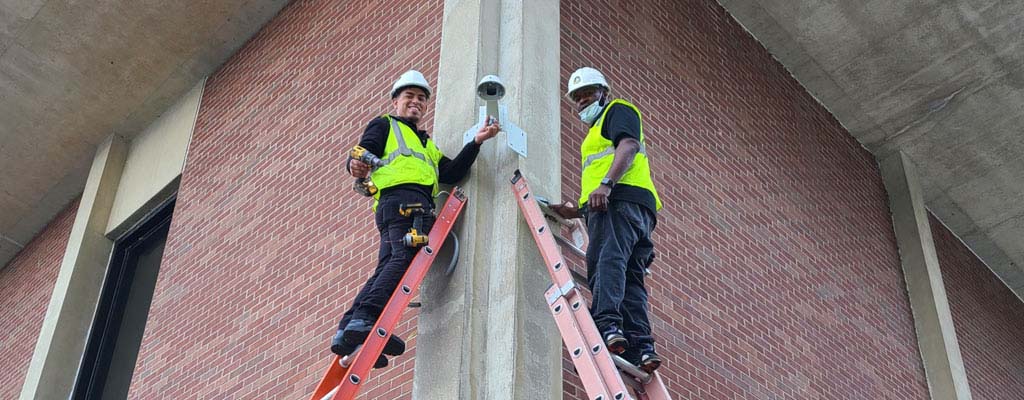
You can trust our team at Mammoth Security to develop and install the right security solutions to protect your healthcare facility. From alarms and access control to cameras and cabling, the expertise you need is just a few clicks away.
Fill out the simple form below to set up a free consultation. You’ll meet a friendly member of our team who will survey your site, spot points where your security can be improved, and begin to develop a security system that’s expertly tailored to your facility's unique layout and needs.

Wireless
IP Cameras
Wireless cameras are not reliable enough for commercial use yet. Instead, we use purpose-built antennae to connect hardwired cameras on light poles and buildings.

Phone App
For Camera Systems
Watch live or previously recorded footage on any mobile device. Save it to your phone and e-mail it just like any other video or image.

Increased Resolution
Of 4096×2160
4k or 8MP cameras represent the best value at the moment. Depending on your situation, a 30+ megapixel camera can be installed allowing you to read a seat number from the opposite end of a football field.

Employ The Same Technology As These Companies:


